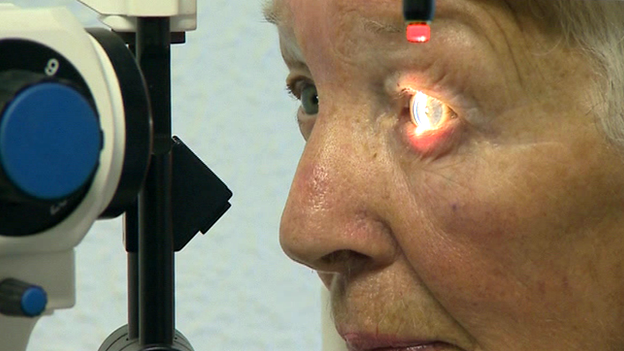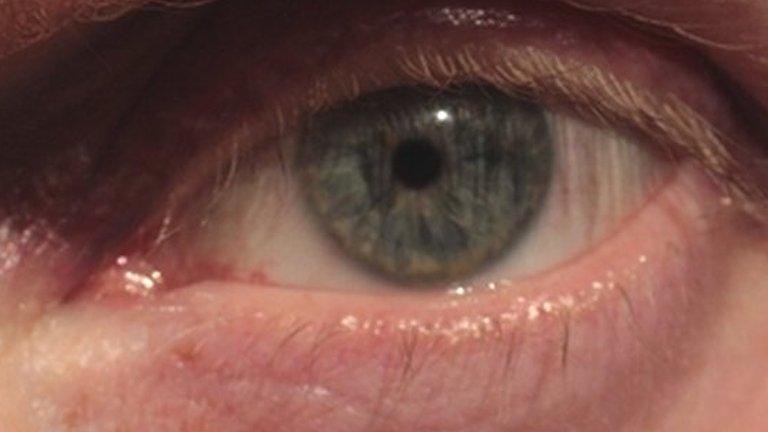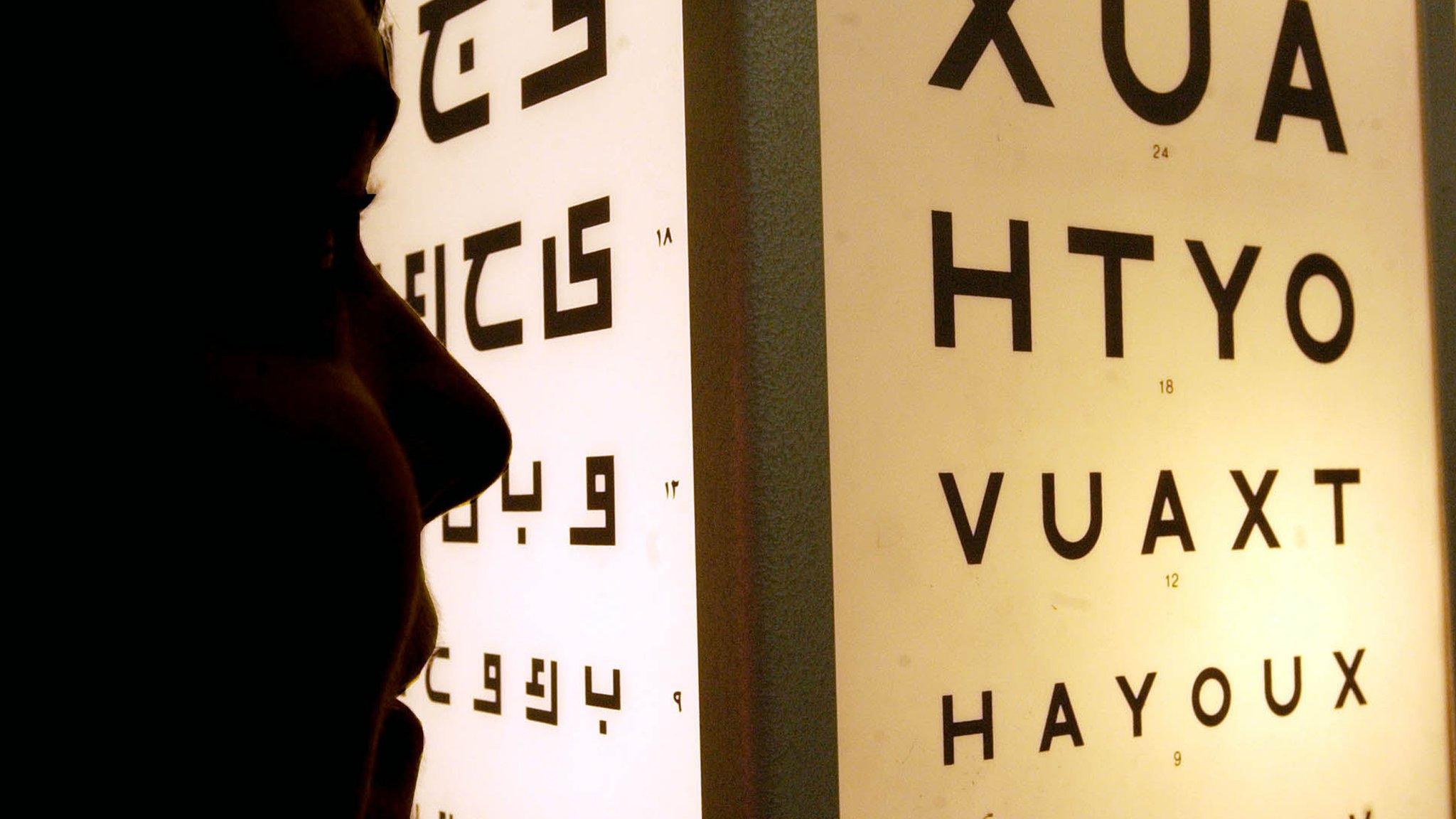Eye treatment waiting list more than doubles
- Published

Low risk cases are being treated at optician's practices to reduce pressure on hospital clinics
The number of eye patients waiting more than nine months to see a consultant has more than doubled in a year, BBC Wales has learnt.
Doctors say new treatments for eye conditions means there has been an increase in hospital demand.
Clinics have tried to ease the appointment pressures by treating more people at opticians.
A government adviser said many low risk cases did not need to go to hospital.
Nearly 100,000 people in Wales have sight loss problems and it is thought that number could double by 2050 as the population ages.
'Increasing strain'
The number of eye patients waiting more than 36 weeks for their first consultant appointment in Wales more than doubled in the past year, from 4,650 in 2012-13 to nearly 11,000 in 2013-14, according to the Welsh government's annual report on eye care in Wales, external.
Consultant ophthalmologist Chris Blyth, a member of the council of the Royal College of Ophthalmologists based in Newport, told the BBC's Eye on Wales programme that hospital eye clinics were under increasing strain.
"I think you have to bear in mind that about 1 in 10 outpatient appointments in the NHS is in an eye department and ophthalmologists perform the most common operation in the NHS - there were 16,000 cataract operations in Wales in the last year.
"In 2007, there was a new treatment for wet macular degeneration," he said, referring to a condition mainly affecting people over the age of 50 in which they lose sight in the central field of vision.
"So before March 2007 there were almost no patients having treatment for macular degeneration, now we've got about 4,000 patients in Wales who have to come to the eye clinic every four to six weeks."

Sight saving

Pam Watkins: "It is worrying"
Pam Watkins from Newport was diagnosed with wet macular degeneration in 2013.
The condition leaves sufferers with some peripheral vision but makes it difficult for them to recognise faces or read.
She goes to her local hospital clinic for regular injections into her eye to save her sight.
She said she often struggles to get appointments within the recommended time frame.
"Sometimes I would go six to eight weeks without an injection.
"They say they are doing the best they can but it is worrying," she said.

Ceri Jackson, director of RNIB Cymru, said she was concerned the pressure to meet hospital waiting times targets could hit patients with worsening problems.
"The referral to treatment time target is sometimes detrimental to clinicians trying to treat patients to save their sight," she said.
"The pressure is often to see the new patient, not the follow-up patient."
The number of people being referred to hospital clinics has fallen in recent years, as a result of initiatives aimed at treating more people at opticians' practices.
In September, the Welsh government launched its first Eye Health Care Delivery Plan, external which will see a number of other changes introduced to the system over the next five years.
Chief optometric adviser Dr Barbara Ryan said: "We're outlining a whole change in the way that we deliver eye care."
She explained that not everyone with an eye condition will visit a consultant ophthalmologist as they might be seen in an ophthalmic diagnostic and treatment centre nd if "low risk and their condition is quite stable someone other than a doctor could review them and do tests".
Eye on Wales can be heard on BBC Radio Wales on Sunday, 13 July at 13:30 BST.
- Published13 December 2013

- Published18 September 2013

- Published6 July 2013

- Published19 March 2011